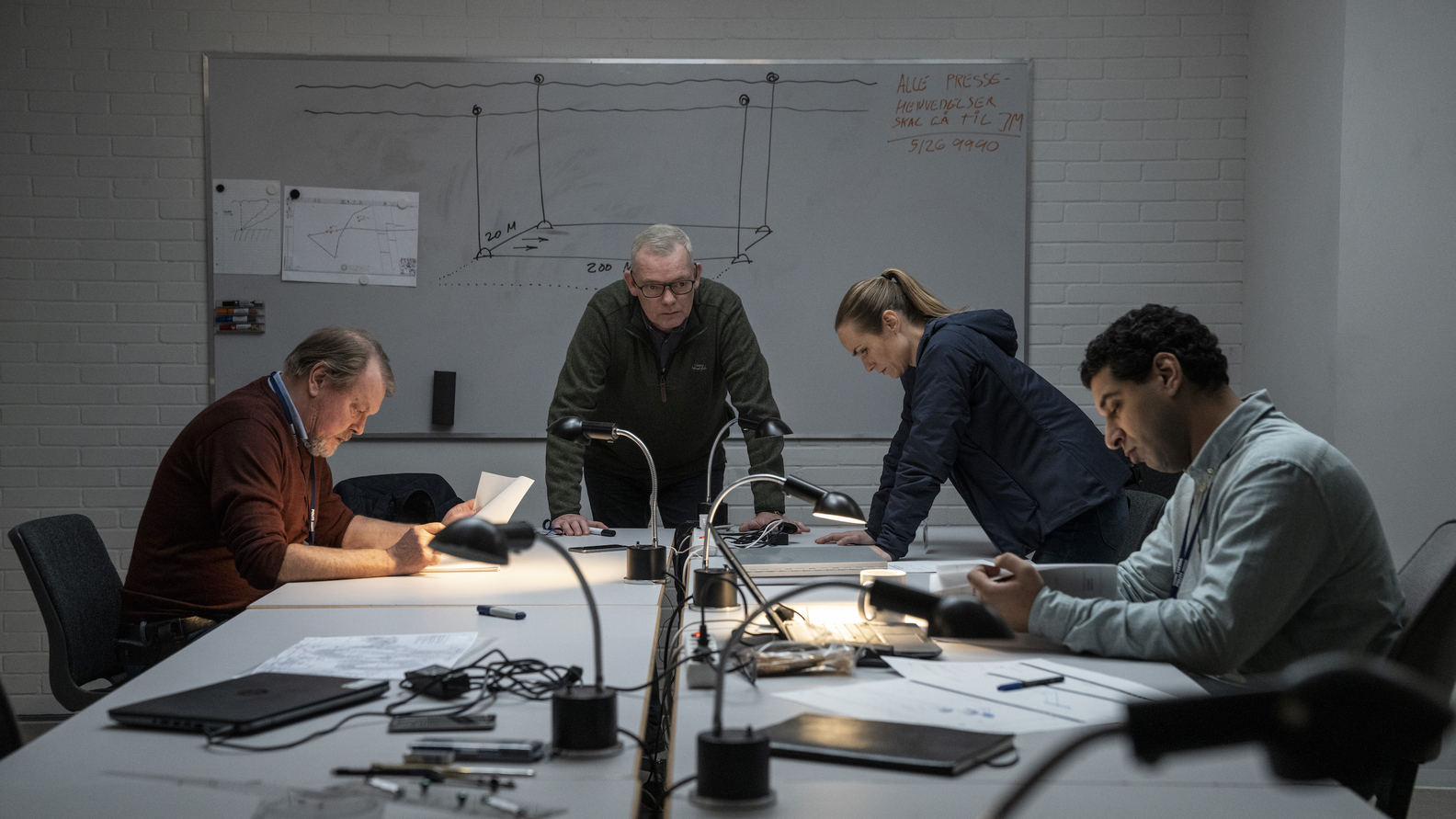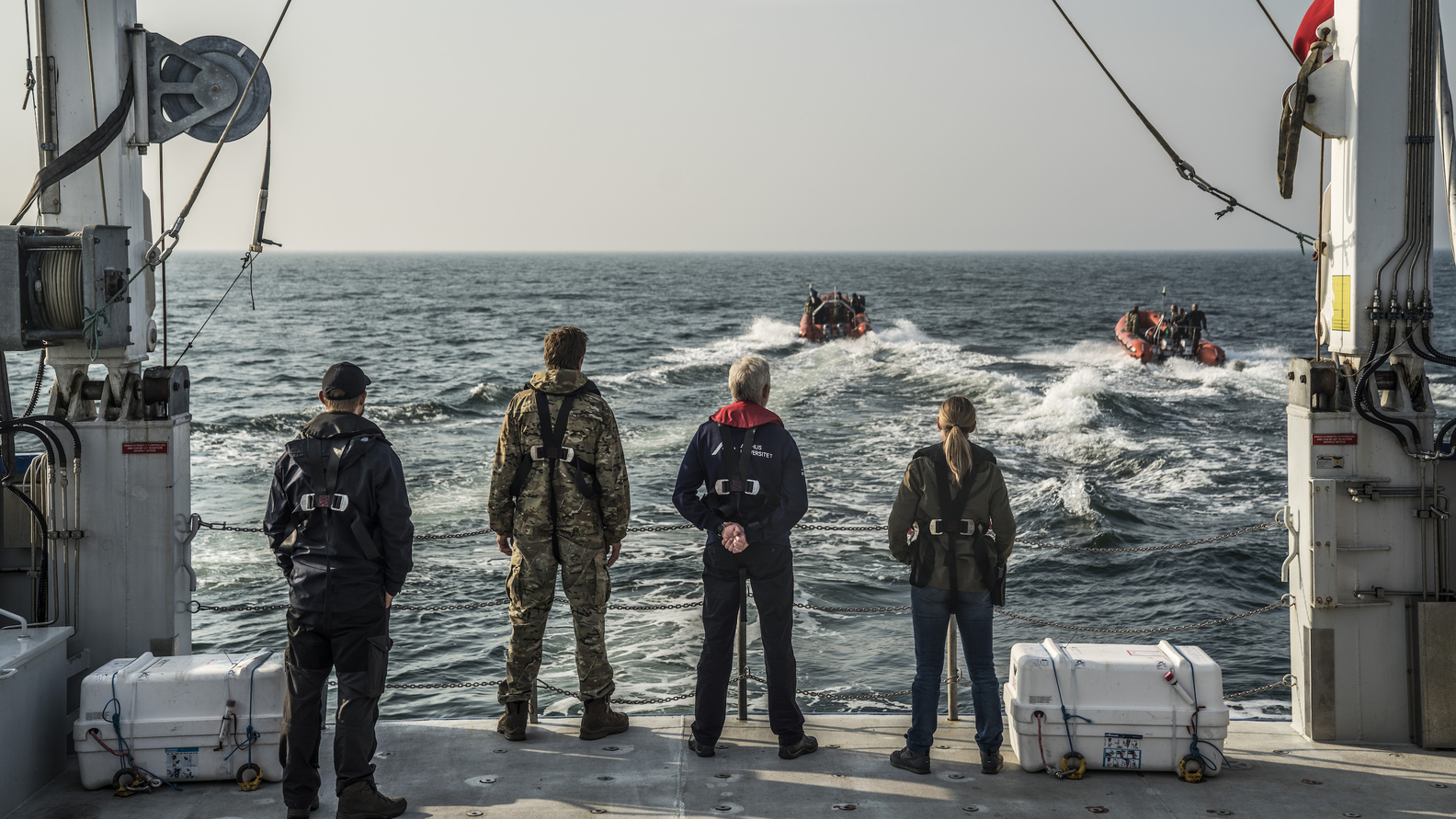'The Investigation' is a different type of true crime drama
The Danish series is a quietly gripping look at investigation into the murder of Swedish journalist Kim Wall

The latest updates, reviews and unmissable series to watch and more!
You are now subscribed
Your newsletter sign-up was successful
Want to add more newsletters?

ONCE A WEEK
What to Watch
Get all the latest TV news and movie reviews, streaming recommendations and exclusive interviews sent directly to your inbox each week in a newsletter put together by our experts just for you.

ONCE A WEEK
What to Watch Soapbox
Sign up to our new soap newsletter to get all the latest news, spoilers and gossip from the biggest US soaps sent straight to your inbox… so you never miss a moment of the drama!
Making its North American debut on Feb. 1, the HBO-acquired The Investigation is a new type of true crime drama, and one that deftly avoids many of the genre’s most problematic pitfalls. The Danish series, from creator Tobias Lindholm (Borgen), covers the investigation into the 2017 murder of Swedish journalist Kim Wall, who was killed in Denmark while on assignment. Often referred to as “the submarine case,” the media coverage of the crime primarily focused on Wall’s killer, Peter Madsen, and the more gruesome details of the 30-year-old’s death. But The Investigation has no interest in piling on the sensationalized (and criticized) coverage of the case. Instead, the series stays true to its title, methodically highlighting the tedious, difficult work of the dedicated detectives, divers, and scientists who worked on the investigation. And it does this all without ever showing Madsen or saying his name on screen.
In a welcome break from true crime tropes, the omission of Madsen from the story means there is no humanizing the perpetrator or centering him at the expense of the victim. Characters still reference interrogating Madsen and his many contradictory statements about what happened on the submarine, but all of Madsen’s interviews and court appearances occur offscreen. In many ways, the series is the antithesis of Mindhunter, a Netflix drama Lindholm previously worked on that was focused on law enforcements’ attempts to understand the minds of serial killers. Questions of motive do occur throughout The Investigation, not because the detectives are fascinated by how Madsen thinks, but only to aid them in gathering enough evidence to dispute his ever-shifting version of events.
The fact that the case’s lead investigator never interviewed Madsen helped convince Lindholm that telling the story in this way was possible, but it was the creator’s desire to pay tribute to the selfless individuals whose dogged and often dispiriting grind secured Madsen’s conviction that is the true inspiration for The Investigation. Too often in true crime shows, the series is driven by the thrill of the hunt or treats the case like a moral crusade, in the process turning tragedy into entertainment and losing sight of the victim entirely. But through its meticulous focus on the casework, The Investigation honors all those involved — from the exhausted divers who searched the water for months to the forensic scientists whose detailed reports were key to refuting Madsen’s claims to Wall's family who pushed to get justice for their daughter — by documenting in painstaking detail the laborious groundwork they put in over the course of the five-month investigation.
At the center of this team of investigators is Jens Møller (portrayed by Borgen’s Søren Malling), Copenhagen’s chief of homicide whose stoic, considered approach to the case is a far cry from the typical tortured detective we’re used to seeing on screen. By the time the six-episode series wraps, it’s easy to understand why this case was Møller’s last before he opted to retire, but the series never veers into melodrama in its depiction of the toll Møller’s work takes on him. Unlike so many leading detectives on TV, Møller’s steady persistence on the case isn’t because of a personal drive to solve a mystery, be a hero, or run from his own problems, but comes from a deep sense of obligation to Wall’s parents Joachim and Ingrid (Rolf Lassgård and Pernilla August), who develop a distanced respect and eventually a tender friendship with the detective.

There is a dry tedium to The Investigation, which makes viewers feel the toll of every single day that Møller and his team worked to build a case. The slow trudge of time is highlighted as the passing days are documented on screen, from the moment the report of the sinking sub comes in on Day 1 through the first day of Madsen’s trial on Day 210. In one of the show’s most memorable episodes, the series focuses almost entirely on the diving team’s key task of searching for Wall’s remains at sea in the hopes of being able to determine a cause of death and to provide her with a proper burial. Watching the divers go on fruitless searches for nearly two months before having success, it’s as easy to feel the weight of the seemingly impossible task they faced as it is to be inspired by their persistence in the face of dismal odds.
Even when there is a crucial break in the case, The Investigation makes clear that there is no happy ending to be found here. A young woman was killed, and the grief of that loss is an ever-present undercurrent throughout the series. And while Wall is not portrayed in the drama, the series makes it a point to pay tribute to her work as a talented journalist, and in doing so reframe her legacy to be more about her achievements in life rather than how she died. The inclusion of Wall’s parents as central characters also provides The Investigation with a necessary emotional anchor, as they share memories of Kim with a delicate reverence and keep the stakes of the investigation solidly at the forefront of the story.
The Investigation’s understated depiction of grief and duty serves to only heighten the emotional impact of the series, lending it a sense of somber authenticity often lacking in the genre. When making the series, the director consulted closely with Møller, Joachim and Ingrid Wall, as well as others involved in the investigation. Some of the real divers and ship crew members from the case appear in the drama, and the actual cadaver dog who worked the case and the Walls’ family dog, Iso, also play themselves. Without having outside knowledge, these moments of verisimilitude won’t register for viewers. But Lindholm’s dedication to honoring the efforts and experiences of Wall’s parents and the investigators with accuracy, discretion, and care is obvious to all.
The latest updates, reviews and unmissable series to watch and more!
The Investigation’s quietly compelling approach to true crime proves what makes these stories gripping aren’t the lurid details or criminals, but the humanity of the victim, their loved ones, and all those working to provide them with a sense of closure. For too long, the true crime genre has been dominated by sensationalized dramatizations that fall within the narrow parameters of centering either the killer or the tortured detective who catches them. But The Investigation, and its impressive success in Denmark, is proof that there are so many more ways to tell these stories and a true hunger for the genre to evolve. One can only hope that in The Investigation’s wake more true crime shows will find ways to break from the mold and find the humanity among the darkest stories.

